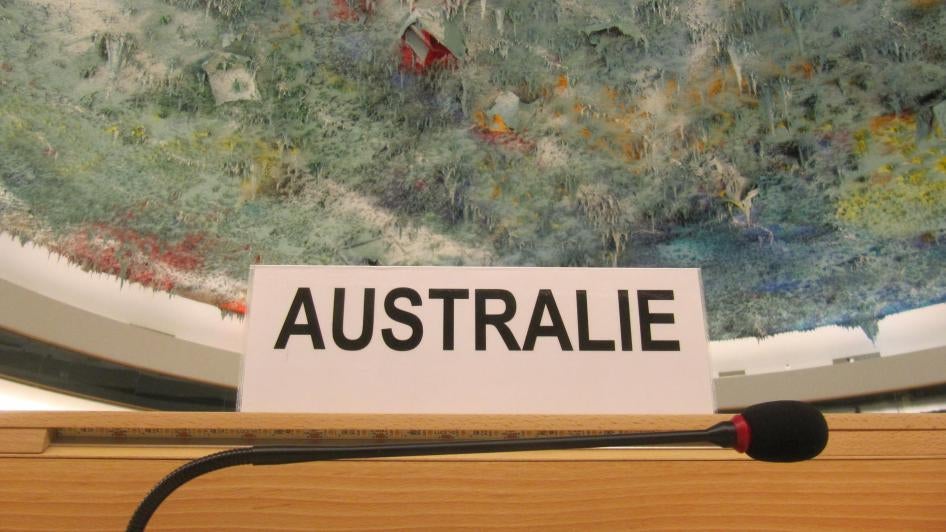Human Rights Watch deeply regrets that Australia has rejected recommendations to end the mandatory detention of asylum seekers and close offshore processing centers. Human Rights Watch and the United Nations High Commissioner for Refugees have documented the violence, harsh conditions and inadequate medical care that refugees and asylum seekers endure in Papua New Guinea and Nauru. Australia remains responsible for the refugees and asylum seekers that it has forcibly transferred under these arrangements and is failing in its obligations under the 1951 Refugee Convention and international human rights law.
It is extremely disappointing that Australia has rejected recommendations to prohibit the detention of children who are refugees or asylum seekers. Australia’s statement that immigration detention of children is always a last resort does not reflect the reality of Australia’s extremely harsh treatment of children seeking asylum. In recent weeks, the Australian government granted a temporary visa to 6-year-old Kopika Murugappan, after she and her 4-year-old sister, Tharnicaa, spent three years in immigration detention. Both sisters were born in Australia. While the family’s temporary release from detention is welcome, the Australian government should grant both sisters visas that would allow them to remain permanently in their country of birth, together with their parents. Because it is recognized under international human rights standards that immigration-related detention is never in the best interest of the child, Australia should release all children from all forms of immigration detention.
Australia’s acceptance of many recommendations to reduce the overrepresentation of First Nations people in the criminal justice system could result in long-needed reforms. However, Australia has a history of failing to implement recommendations designed to reduce Indigenous incarceration rates. Thirty years after the landmark Royal Commission into Aboriginal Deaths in Custody, many of its recommendations have not been fully implemented. It is disappointing that Australia has failed to commit to a federal policy aim to raise the age of criminal responsibility, though some Australian state governments have announced an intention to do so. Despite Australia’s acceptance of recommendations to reduce Indigenous incarceration rates in its 2015 UPR, by 2019, Indigenous people, who constitute 3 percent of the Australian population, comprised 28 percent of its adult prisoners.
We welcome Australia’s pledge that it will meet its 2030 Paris target and reach net zero as soon as possible, preferably by 2050. However, last week the Morrison government announced AU$175 million of government financial assistance to help build a new coal mine in Queensland, while a recent UN report found that Australia came in last on action in response to climate change among more than 170 UN members analyzed.








